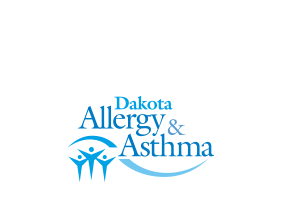It’s about time to return to school. Classes, gym, sports, music, and friends await!
Students with allergies don’t just bring their desire to learn and participate when they get back to school. They also bring their allergies! Knowing this can be frightening, especially for a parent who knows how much their child suffers because of their allergies. Just remember, our schools have been at this for years so you want to tap into all the support you can to help your child stay well.
Food Allergies:
If your child has a food allergy they will need to continue avoidances. Each school has a process in place to inform the cafeteria, teachers, and office who needs to avoid what. Your school will normally provide an authorization form to allow medications indicating when to use them so the epinephrine injector can be available if and when it needs to be used for an incident. Your child should be taught in advance to be careful with what they eat and practice avoidance daily. Parents and children have to maintain the balancing act of being careful versus being anxious. Don’t let statements like “Peanut Free School” lull you into thinking it is safe—plenty of peanuts are consumed in those areas. Two tips that help children stay safe include providing a clean table for children with food allergies and children being taught not to eat off friend’s plates! Remember, the allergic child needs to actually eat the food before a significant reaction will occur so some parents and/or kids prefer to bring their own lunch and snacks. A final word—get your school forms to your Allergist or Primary Care Provider early so they can do their part before school starts. Most providers will want to see the patient at that time and be sure the allergy program is in place and understood by the child.
Asthma and Allergies:
The asthmatic student will continue to exercise, get colds, and be exposed to their allergens when they return to the classroom. They need to have their reliever ready to go at all times. Each school will have authorization form(s) to allow the albuterol and advise everyone how and when it should be used and what to do if it isn’t working. The student also needs to remember to take the medication before hard exercise. An asthma recheck is normally recommended before school starts to determine if an asthma controller is needed to prevent symptoms from happening. Asthmatics should be allowed to fully participate in gym class and sports. They may miss a few days if they get sick with an infection (just like non-asthmatics miss a few days at times with infections). If the child’s asthma is getting in the way of their activity, you should contact your Physician regarding a change in the controller plan or look for a new health problem that might be causing their asthma to worsen. At times, you may have to remind your asthmatic child that everyone gets short of breath with hard exercise. It is just the asthma that causes the coughing, tight chest, and wheezing symptoms. Therefore, better conditioning will help them, just like it does everyone! Lastly, sticking to the asthma plan every day makes the biggest difference for the asthmatic. This is normally a task that requires family involvement and partnership with your Allergist.
Success for Children with Allergies:
Successful allergy maintenance involves the student, school, parents, and Allergist all working together. If your student isn’t fully participating in their day to day life because of allergies, schedule an appointment with their Allergist as soon as possible.




